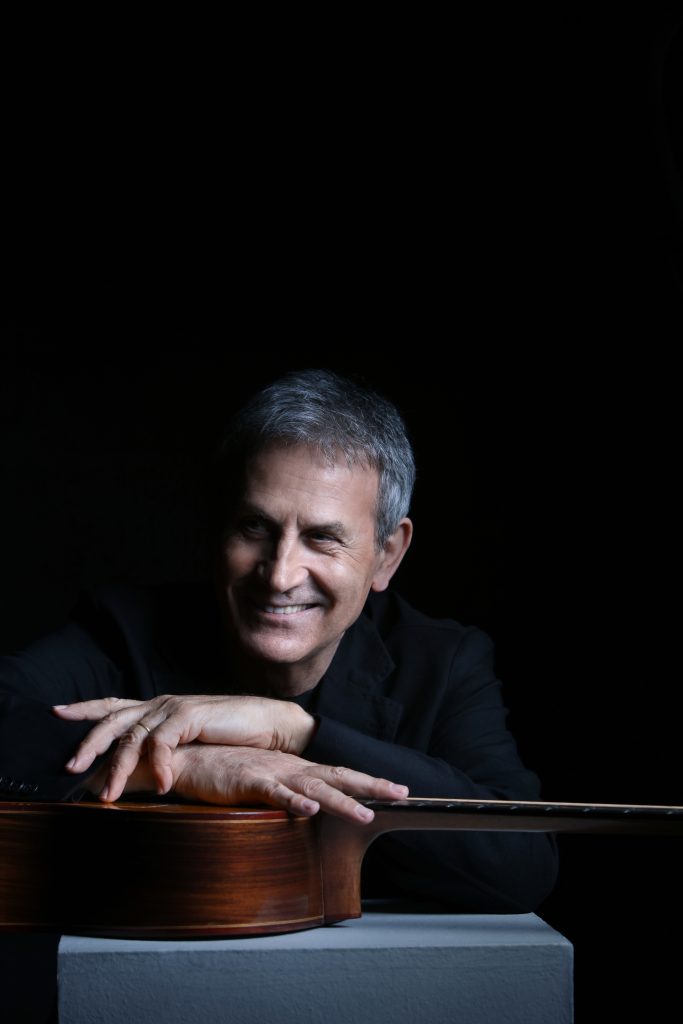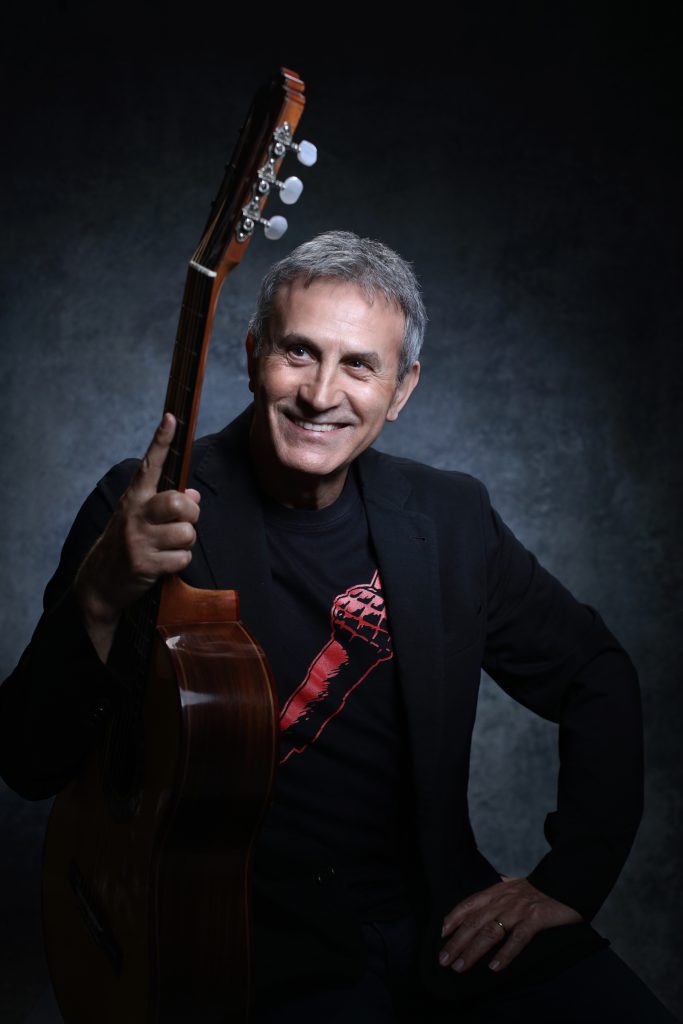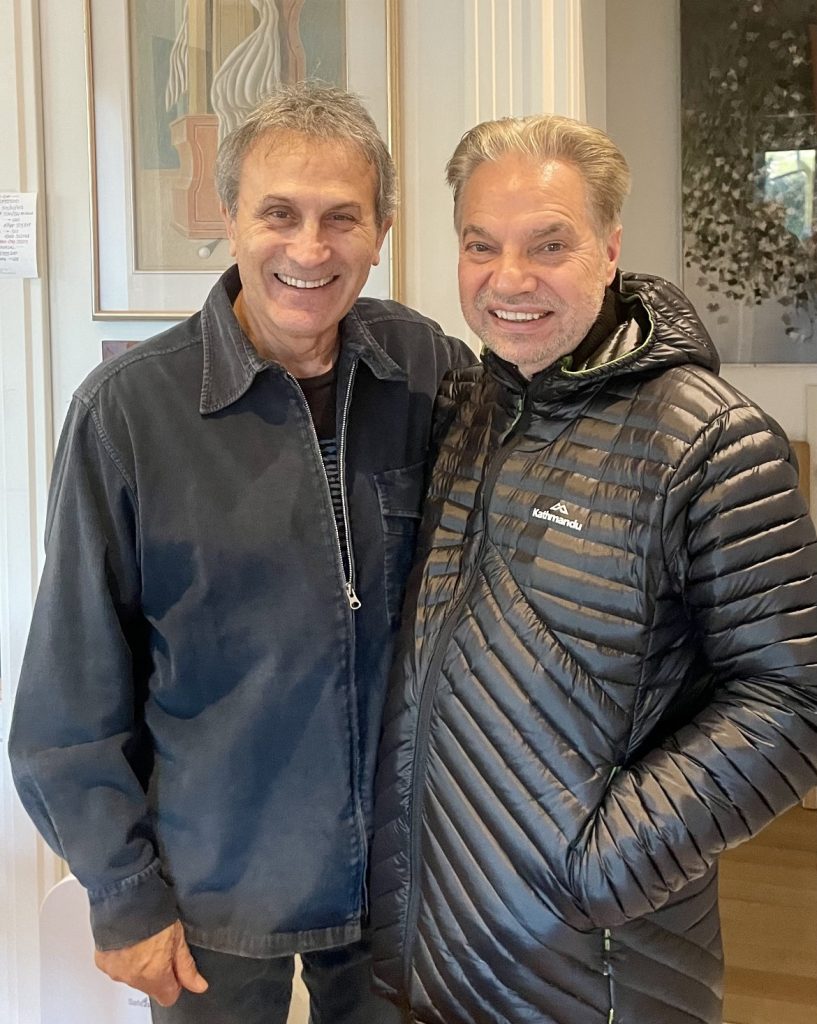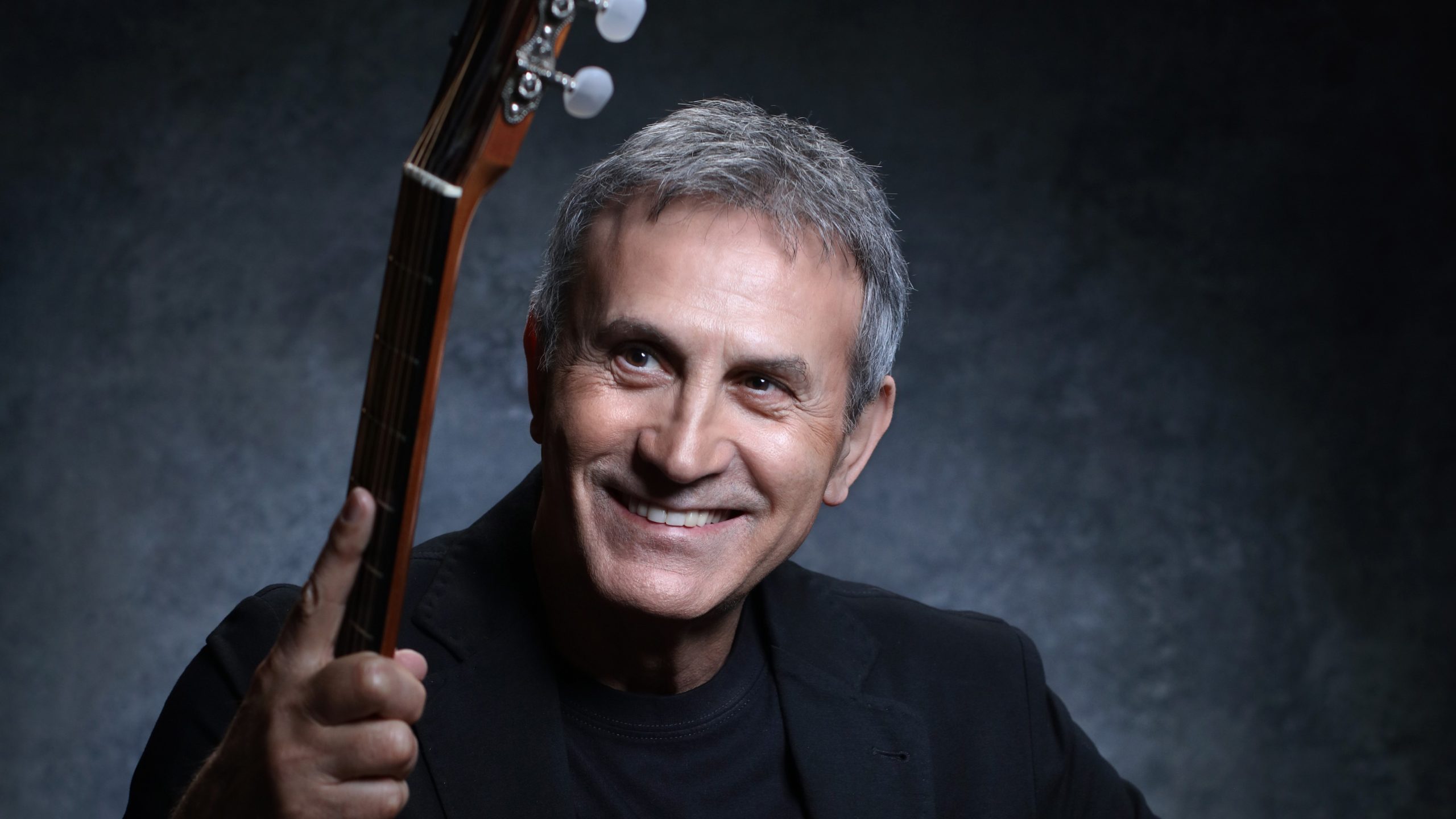George Dalaras… Just the name alone brings to mind the iconic Greek musician well-known for powerful songs influenced by rembetiko, the “Greek blues,” Greek folk music and by Latin American colouring.
Dalaras has taken his love and passion of Greek music all over the world. He’s sold over 20 million albums, sold out concert halls worldwide and collaborated with other musicians such as Sting and Bruce Springsteen.
In 2010, Dalaras also headed down under to Australia but he hasn’t returned again until this year, where he will be performing at concerts in Sydney, Perth and Melbourne.
Ahead of his Sydney concert at the State Theatre on Friday, May 26 – which is being organised by Encore Productions and the Greek Festival of Sydney – Dalaras gave an exclusive interview to The Greek Herald and sent a message to Australia’s Greek diaspora.
How did your upbringing and first memories of music inspire you to become a singer?
I think the fact that I became a singer and a musician was pre-destined, it was bound to happen. It is known that I come from a family of musicians. My grandfather, father and uncles were all musicians. On the other hand, my Asia Minor mother conveyed her memories through songs. Music was always in our house. So, from an early age, I understood that there was no way for me to become anything other than a musician and after 55 years I am happy that I did what I dreamed of and loved when I was very young. I continue to do a job that I love, which fills my soul and still makes me dream.

You are credited with reviving ‘rebetika’ in Greece. Why are you so passionate about this genre of music?
Because it is the most beautiful kind of music, it is our history, it is what inspired the modern Greek composers. I have known rebetika since I was a child and my great wish when I first recorded them was that as many young people as possible could know them. I wanted to convey the emotion I felt when I was young listening to my father and his musician friends play and sing these songs. No one imposed this passion on me, this debt. I carried it alone. My relationship with rebetiko is a constant relationship of study and love, it defined me as a musician.
Beyond my own experiential, lasting and important relationship though, rebetiko is our tradition, it is part of our musical culture, it is the music of our homeland. Perhaps the most characteristic part of Greek music. Although it does not have such a long history as the folk song, traditional and Byzantine music, it has an equally great value. Not only musical but also social and historical. This is the music that expressed the deepest feeling of our people.
Many of your songs are performed in different languages. Is this a way to connect with different diasporic communities across the world? Why is it important to you to perform in different languages?
It was not my original pursuit to sing in different languages. I only met and loved one language, that of music. It is the most widespread one, the one without borders and the most beloved, one that all people can understand. Many of our songs became songs of people from other countries, the same way that we loved the songs of our neighbour countries. We have a lot in common, especially the Mediterranean peoples. We were talking about rebetiko before. We can find common points in flamenco and fado. Same worries, pain and expression of joy.
What has been a highlight of your career so far?
All these years of my musical career there were moments and collaborations that were special. Great creators entrusted me with their songs. From the very beginning I was lucky enough to work with Manos Loizos, Apostolos Kaldaras, Stavros Kouyoumtzis, Lefteris Papadopoulos. Later, with Manos Eleftheriou and Mikis Theodorakis, Xarchakos, Markopoulos. I was able to travel all over the world. I met friends everywhere who were thirsty for good Greek music. I collaborated with foreign artists.
There were big concerts in Greece and abroad with people in the stands of the stadiums singing as one voice and sometimes demonstrating their rights through songs. This happened in all the political and social concerts, as well as in the concerts for Cyprus. Through the songs we talked about the crime of invasion and occupation, about the injustice that unfortunately continues to this day. And since I’ve been talking for quite some time about the crowded concerts, I will also mention another very important concert for me. The one in the ruins at the village of Schinoudi of Imvros.
As emotional as I felt singing in front of 80,000 people in the Olympic Stadium in Athens, I felt the same, maybe more, when I stepped on the ground in Schinoudi and sang for the people who lost their homeland – the Imvrians. There were many, happy and touching moments in those years. The world showed great love and trust to me. I tried to return this great love with work, with respect and caution. Singing is a complex process and not just three minutes of joy or fun. It contains lyrics, music, experience and quest.
It is a unifying process. I think that maybe some of the strictness they accuse me of is due to the fact that I take this job very seriously. But it deserves to be taken seriously. If we all treated our work with responsibility, things in our lives might be better.
Besides music, you are also a UN Goodwill Ambassador. Tell us a bit about your philanthropic work and where your passion comes from.
It is a deeper feeling, that of solidarity, support, participation and experiences of the past, that direct us to want to be useful. I am a self-raised person and took life into my own hands at a very young age. Since I can remember myself, I have participated in the civic life as a citizen, as a person who lives in the country knowing its history and the struggles it carries. My childhood, together with my people, defined my way of thinking and path and I always believed that we should not live only for ourselves.

Regarding the capacity you refer to, my engagement with the refugee issue is both emotional – I come from a refugee family – but it is also a primary issue for our lives not only in Greece but also throughout the world. An issue that advanced societies have unfortunately created either by imposing dictatorships or by wars or by the irrational accumulation of wealth, the bleeding of natural resources and in recent years by the climate disaster. These are the main causes that create political and economic refugees. What do we answer to these things? Do we ignore them? Are we raising walls? Or do we participate with all our powers?
You are travelling to Australia this year for a music tour. How do you feel in the lead up to your concert?
I haven’t come to Australia since 2010. I would like to come more often and I don’t hide from you that I am very happy to see again people who I consider my friends. People who love the country and listeners who love good songs. I consider Australia one of the most beautiful countries in the world. I have said many times that it is a magical place and a place that I adore. With eagerness and emotion I look forward to reciprocating there. I receive messages of great joy from the diaspora about our concerts. We will play in Melbourne, Perth and Sydney and I hope these three concerts will be remembered for a long time.
What can people expect to see from your concerts?
What people always expect at our concerts is to hear good music. Songs played in a beautiful way, by good musicians and nice voices. The way we listen to music may have changed, people’s need to hear good songs though, hasn’t changed at all. We bring with us excellent musicians and two truly remarkable singers of the new generation, Violeta Ikari and Aspasia Stratigou. I look forward to hearing you sing. And I expect you to bring your Aussie friends along, as you always do.

Do you have a message for the Greek community in Australia?
We love the people of our community and remember them with appreciation and respect. All the Greeks of the diaspora carry the love for Greece and the anticipation. They have managed through hard work to reach a great position in all the fields of public life in Australia. I know very well that they always have Greece in their hearts and that, whenever they were asked to, they helped our homeland and did not forget it. Always, and now, I carry a message that I know they comprehend: “Please do not forget our country!” Even if sometimes it makes us feel bitter.
Is there anything else you’d like to say?
I know that in recent years, after the financial crisis of the previous decade, many of our compatriots immigrated to Australia. Young and educated children were disappointed by what Greece provided or did not provide them with and left hoping that they will make it in their new homeland. I think they found the support they were looking for in the previous generations who not only recovered, but with dignity and hard work became an important part of their second homeland. They matched but did not forget their traditions. United they became stronger.
If I want to say something last, it is to express the same thing I have been expressing for years. To respect democracy, the different point of view and to fight every way the divisive logics. Our country is too small and cannot stand division and hypocrisy. It needs truth, justice, democracy, education and health infrastructure and above all it needs mutual respect.
*Encore Productions would like to thank its patrons for their ongoing and continued support. Please note the Friday, May 26 concert by George Dalaras is now sold out.

